Fake milk dominates the market: In nearly 4 years, illegal profits of 500 billion VND
The Ministry of Public Security's Investigation Police Agency has prosecuted and temporarily detained 8 subjects for the crimes of Producing and trading in counterfeit food products and Violating accounting regulations causing serious consequences.
Accordingly, from August 2021 to present, the subjects have established Rance Pharma International Pharmaceutical Joint Stock Company and Hacofood Group Nutrition Pharmaceutical Joint Stock Company to produce and trade powdered milk.
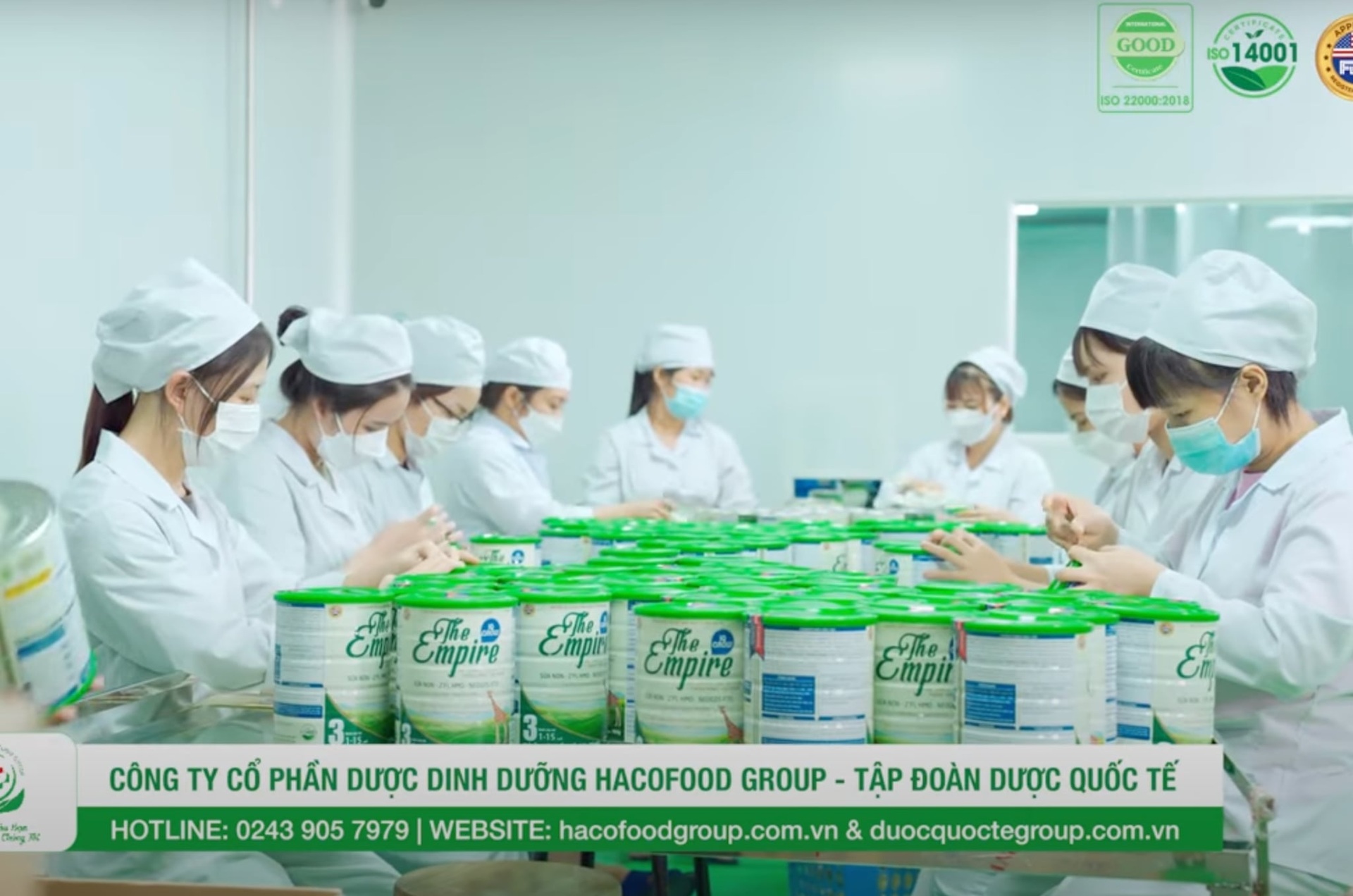
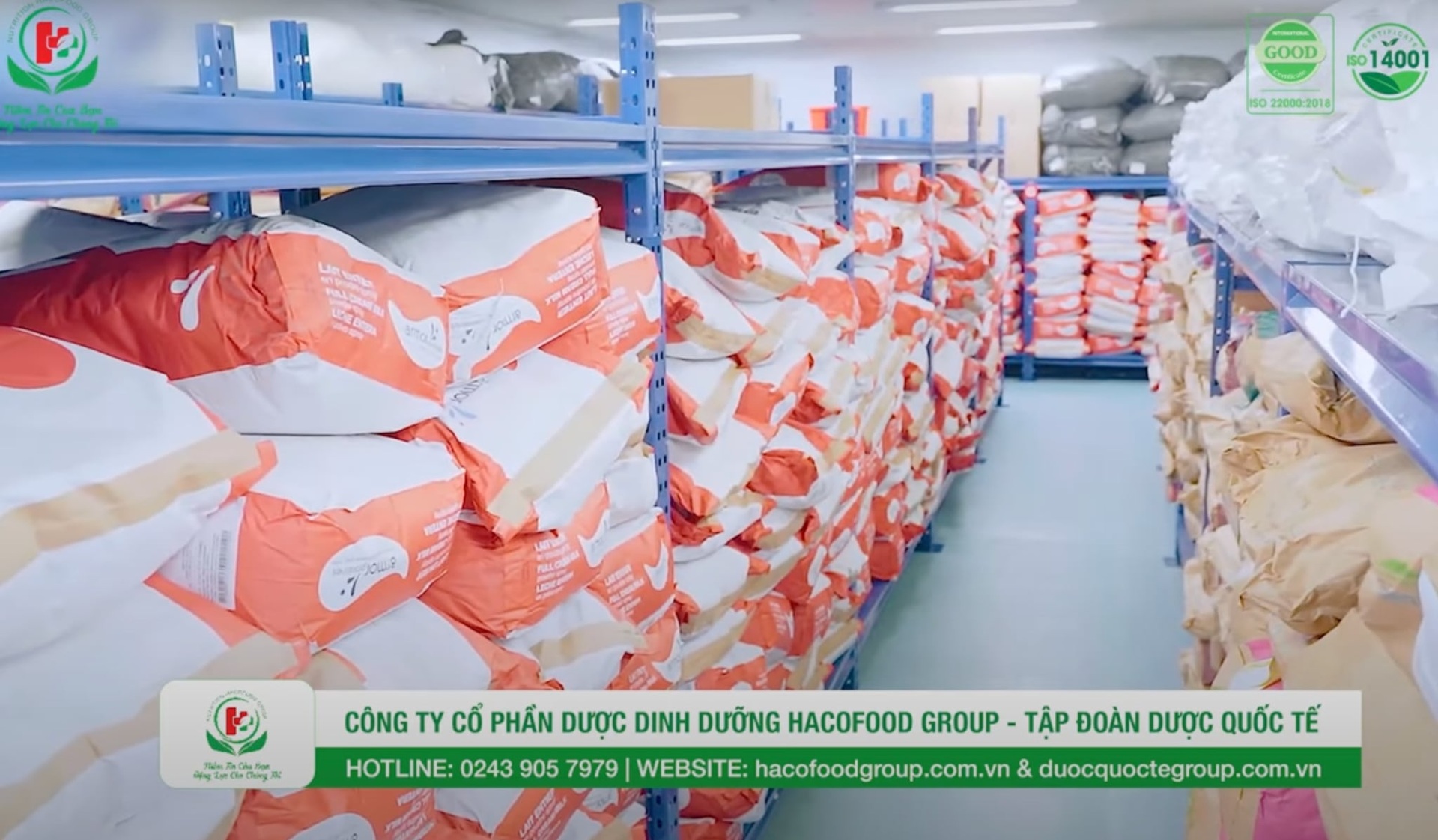
(Screenshot from advertising clip of Hacofood Group Pharmaceutical Nutrition Joint Stock Company)
In addition to the above two companies, the subjects also entered into joint ventures and partnerships in the form of contributing shares with many other subjects to establish 9 more companies, with the purpose of registering the dossiers to declare product lines (product brand labels) and directly trading, distributing and consuming products manufactured at the factories of Hacofood Company and Rance Pharma Company.
According to authorities, to date, this line has produced 573 brands of powdered milk of various types, for people with diabetes, kidney failure, premature babies and pregnant women.
These milk brands are advertised and announced to contain bird's nest extract, cordyceps, macadamia powder, walnut powder... However, through actual inspection, the milk produced by the above 2 companies does not contain these substances, the quality is below 70% of the announced level, enough to be identified as fake goods.
The subjects confessed to having discarded some input materials and replaced and added some additives.
Over the past four years, authorities have determined that the revenue from selling the milk cartons was nearly VND500 billion.
According to the Vietnam Dairy Association, recently, the production and trade of fake, counterfeit, and poor quality goods under the name of dairy products has been on the rise, becoming more complex and sophisticated. Fake and poor quality milk products are mostly concentrated in the group of products used for children, pregnant women, the elderly, and people with underlying diseases...
The production, trade and use of fake milk can lead to serious consequences for the health of consumers, especially children, pregnant women, the elderly, people with underlying diseases...
Fake milk that does not guarantee quality affects the physical and intellectual development of children, the future generation of the country, and causes serious health problems for people with underlying diseases.
Counterfeit milk that does not guarantee quality can contain toxic ingredients, causing acute or chronic poisoning, reducing the body's ability to absorb nutrients necessary for growth, causing consumers to face long-term health problems.
The question remains: Which agency is responsible?
According to Mr. Tran Huu Linh, Director of the Department of Domestic Market Management and Development ( Ministry of Industry and Trade ), the Ministry of Industry and Trade does not directly license and manage products produced and traded by Rance Pharma International Pharmaceutical Joint Stock Company and Hacofood Group Nutrition Pharmaceutical Joint Stock Company.
The enterprises are also not under the specialized management authority of the Ministry of Industry and Trade. According to current law, specialized inspections, periodic checks or post-audits are not allowed for the production and supply of milk of these two enterprises.
According to him, the Ministry of Industry and Trade can only conduct inspections of these enterprises when it detects signs of violations within the scope of assigned functions and tasks.
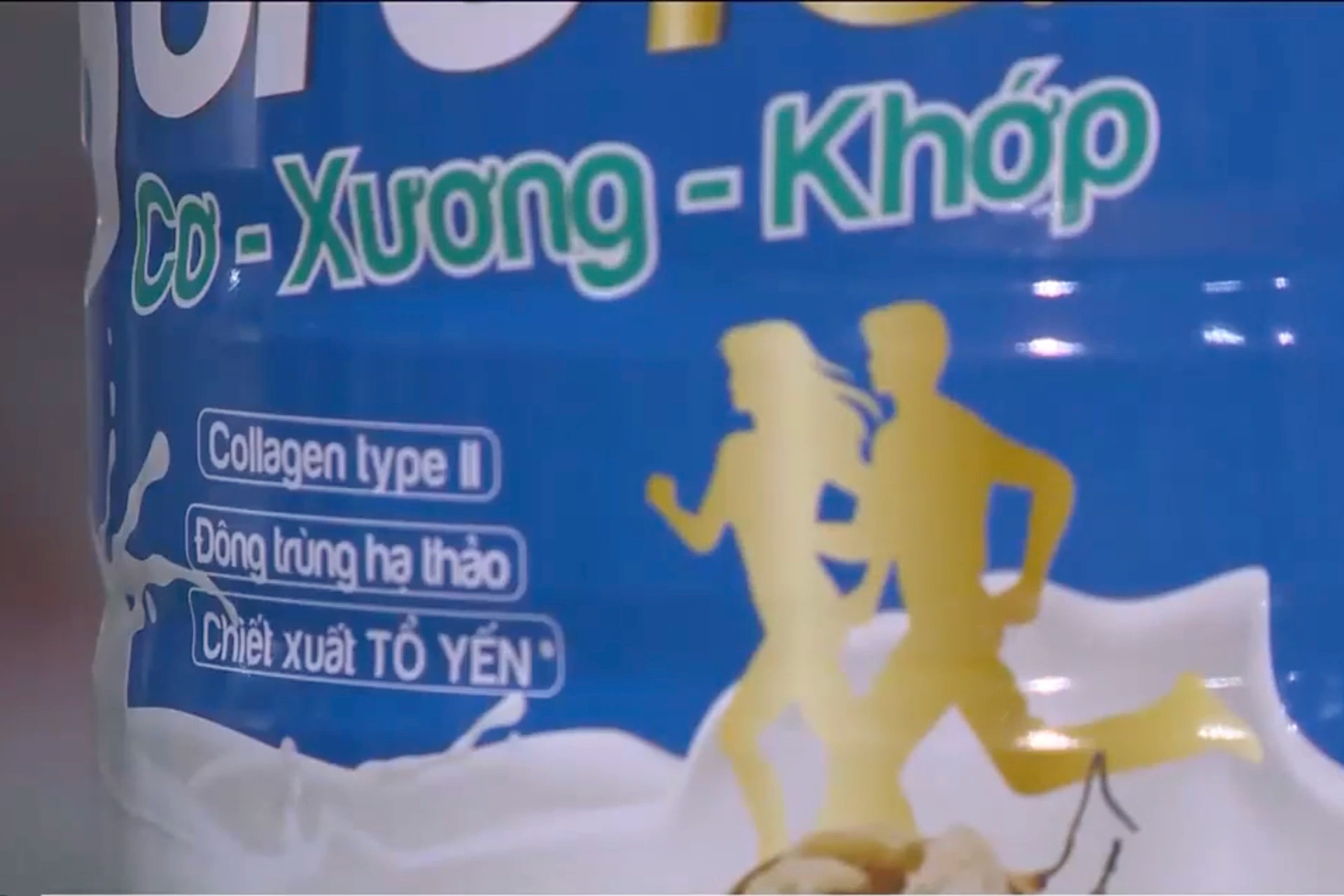
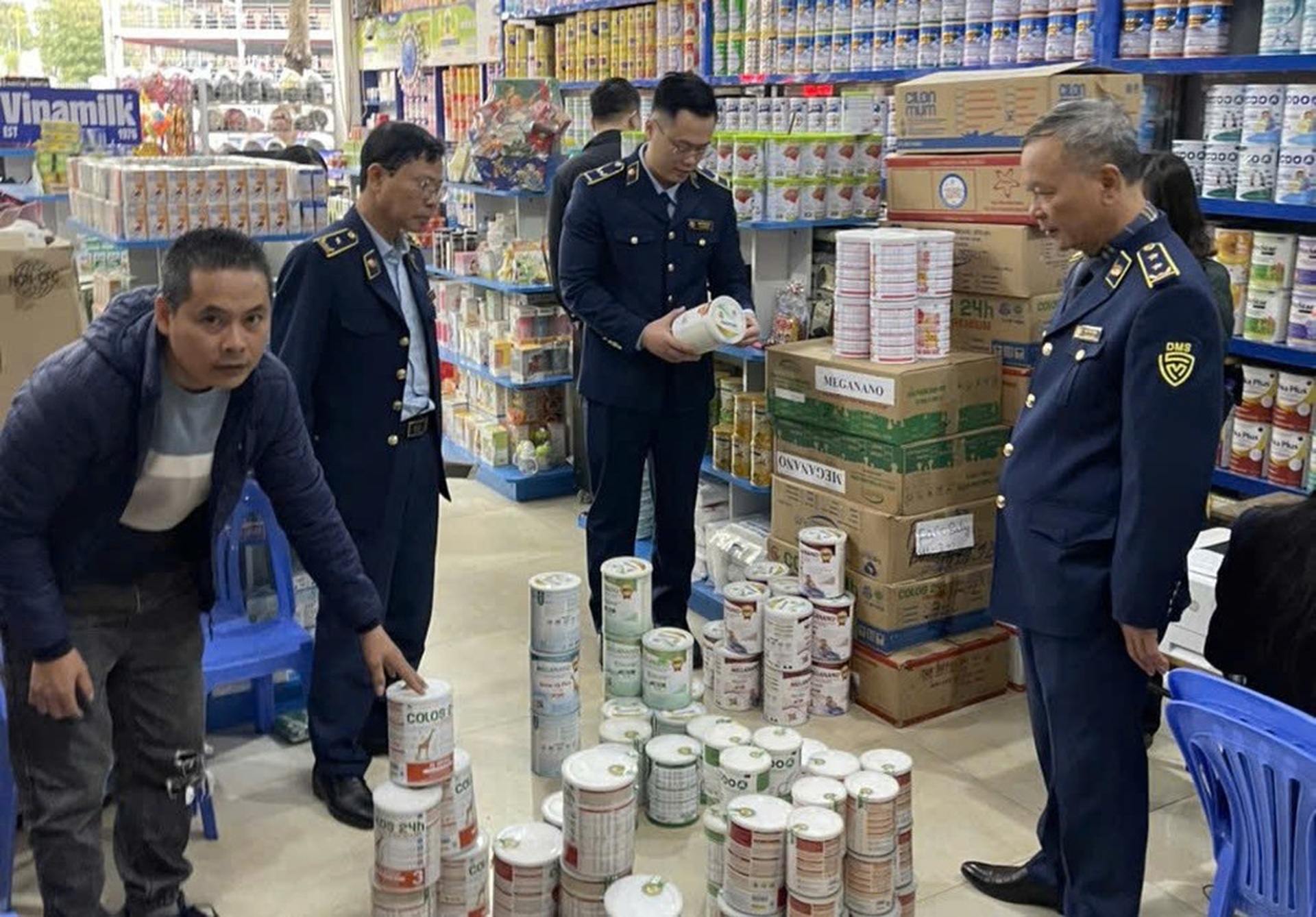
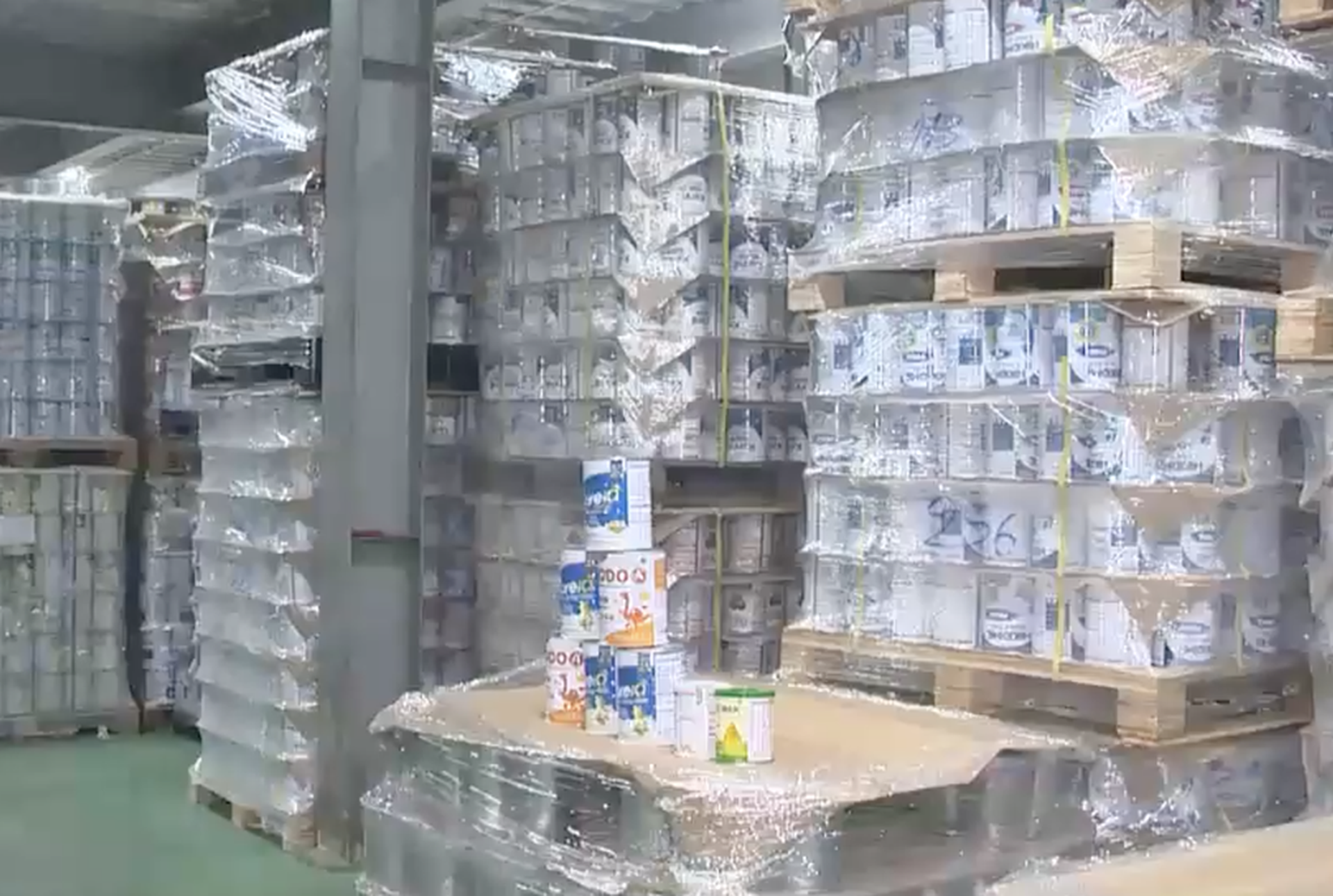
In nearly 4 years, the subjects have illegally profited 500 billion VND (Photo: VTV).
Regarding the announcement and registration of food product declarations, a representative of the Department of Food Safety ( Ministry of Health ) also said that this process is regulated in Decree 15/2018/ND-CP dated February 2, 2018 - detailing a number of articles of the Law on Food Safety.
Accordingly, most food products are self-declared, but 4 high-risk food groups are required to register their product declaration with the competent state agency before circulating on the market.
According to the department, current regulations clearly state the responsibility of businesses in complying with food safety conditions, from production to product circulation.
Regarding the confirmation of food advertising content, according to regulations, the Provincial People's Committee is responsible for "organizing the reception and management of records, issuing Certificates of Acceptance of Product Declarations, Certificates of Confirmation of Advertising Content" for medical nutritional products, foods for special diets, and nutritional products for children up to 36 months of age.
In addition, Decree 15/2018/ND-CP also clearly stipulates the responsibilities of ministries, branches and localities in managing specific food groups; at the same time, it clarifies the role of inspection, examination and handling of violations.
As the standing agency of the Central Steering Committee for Food Safety, the Ministry of Health annually issues a nationwide post-inspection plan. Based on that, ministries, sectors and localities implement their own plans, focusing on strictly handling acts of false advertising, causing confusion and deception to consumers.
The Ministry of Public Security is proposing amendments to the Penal Code to strictly handle violations of food safety, a legal tool expected to effectively prevent fake and unsafe food.
How to strictly control formula milk for children and the elderly?
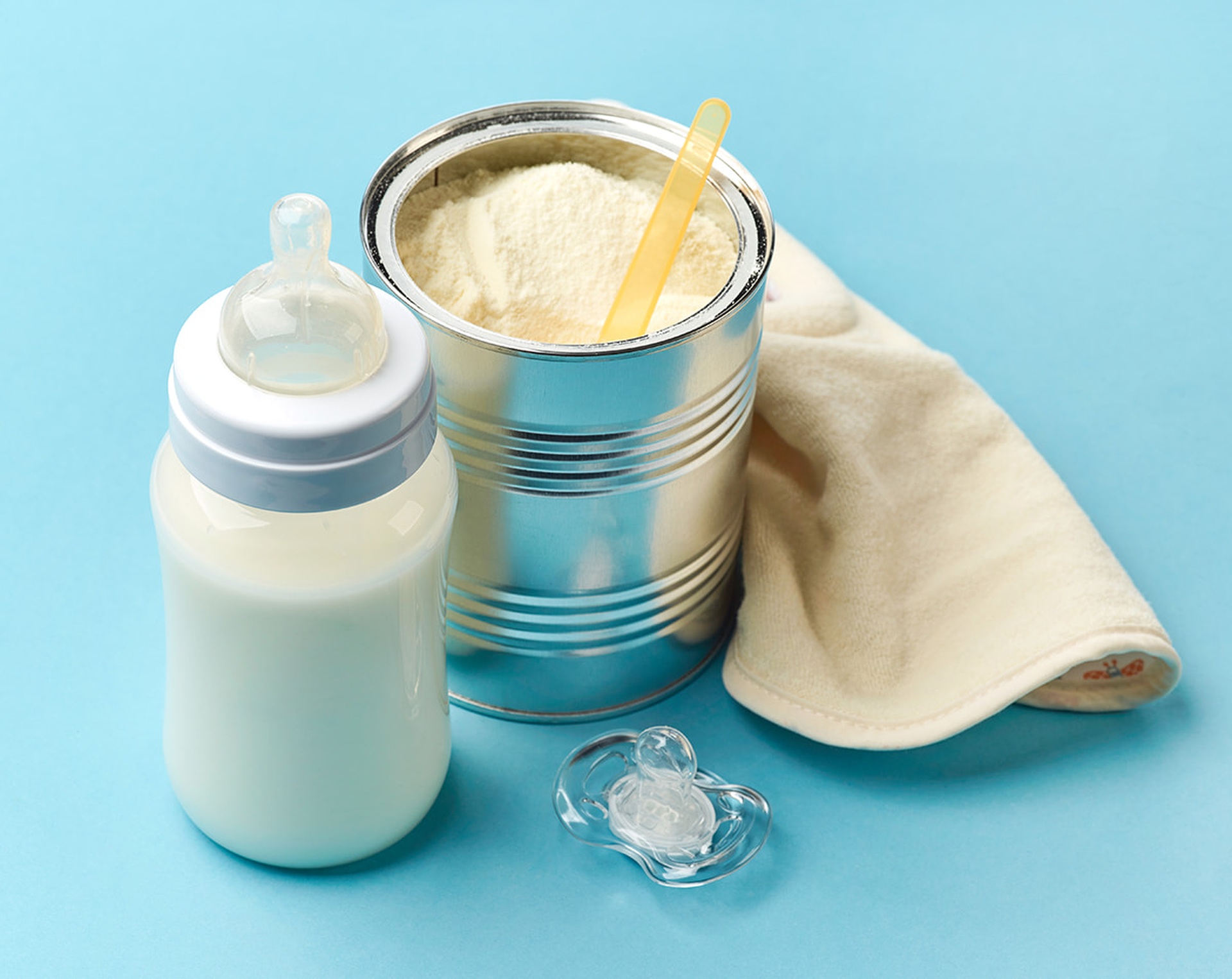
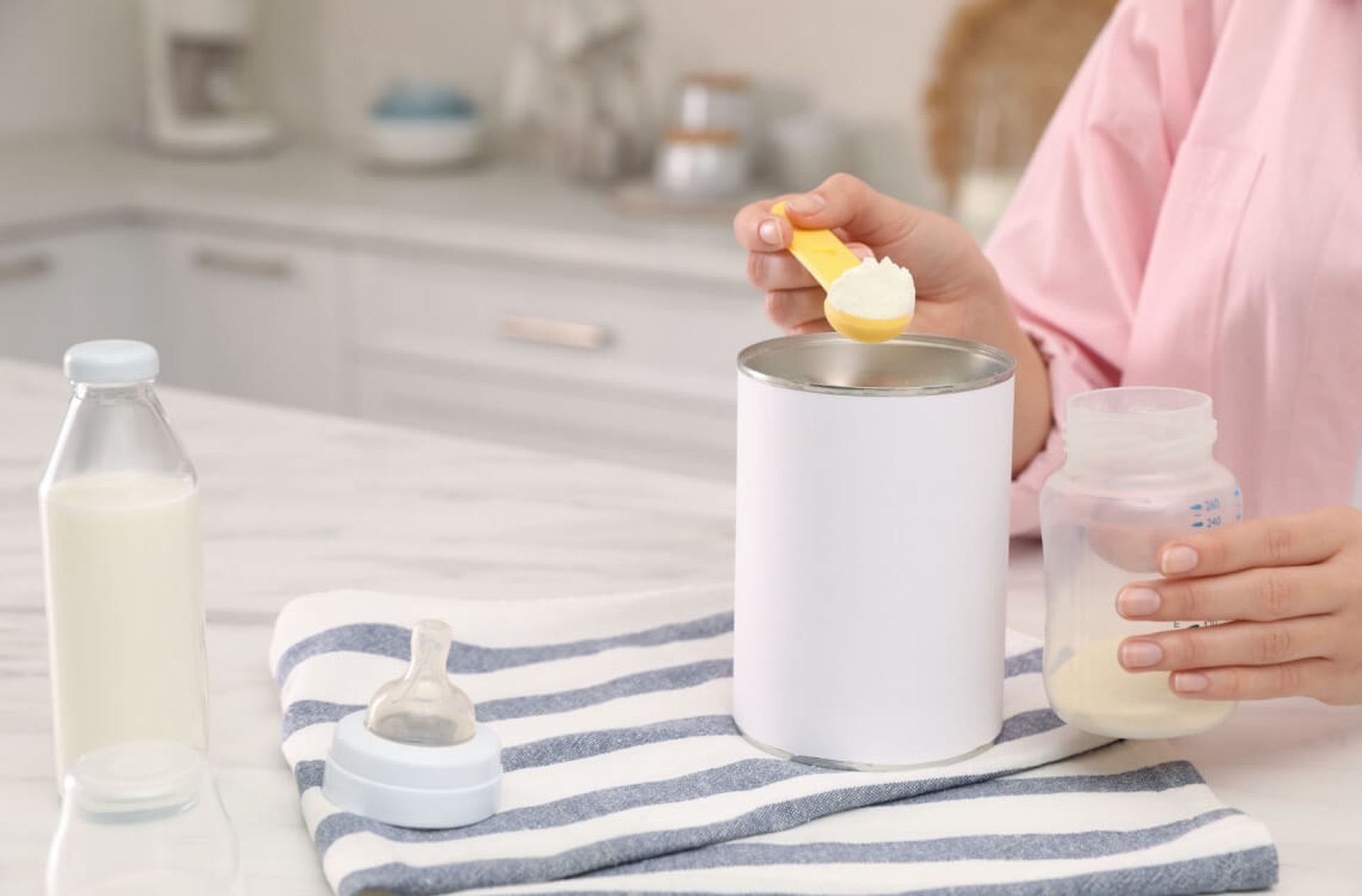
According to statistics from the Ministry of Health, from 2021 to present, the food market has about more than 84,000 common foods; 54,549 functional food products (29,779 health protection foods, 350 medical nutritional foods, 1,287 foods for special diets; 23,133 food supplements) of which up to 80.4% are domestically produced products of 201 production facilities.
In the past, food quality management focused on controlling safety indicators (microbiological and heavy metal indicators) from pre-inspection to post-inspection and preventing hazards (testing to prevent the use of prohibited substances in food) at the post-inspection stage.
In the context of the food market growing strongly in terms of quantity and variety of products and the emergence of new business forms on e-commerce applications and trading platforms, the Ministry of Health believes that it is necessary to strengthen post-inspection and more comprehensive control of food quality.
Therefore, in the draft Decree amending and supplementing a number of articles of Decree 15/2018 of the Government detailing the implementation of a number of articles of the Law on Food Safety, the Ministry of Health proposed many regulations related to post-inspection work.
This is to control and further improve the quality of food in general, functional foods, health protection foods in particular, and to control organizations and individuals who register the declaration; self-declare products...
In the draft revised Food Safety Law, the Ministry of Health also proposed applying stricter food safety standards to milk and dietary supplements.
According to the Ministry of Health, regarding regulations on product quality management systems, up to now, only Good Manufacturing Practices (GMP) are required to be applied to health food production facilities.
Some food product groups with high levels of food safety risks for users such as: Medical nutritional foods for special medical purposes, nutritional products for children up to 36 months old, supplementary foods (formula milk for infants, the elderly)... are still only required to apply "Food safety assurance conditions" like most other common food product groups.
Like food businesses, establishments importing the above high-risk food groups are currently "not eligible for a Certificate of Food Safety Eligibility". This regulation causes difficulties for post-inspection, especially traceability requirements for imported goods.
Therefore, the Ministry of Health proposes to require the application of HACCP (Hazard Analysis and Critical Control Points) or ISO 22000 or equivalent for Medical Nutritional Foods for special medical purposes; nutritional products for children up to 36 months of age; and supplementary foods (including milk).
On the occasion of the Food Safety Action Month, the Food Safety Department (Ministry of Health) has just issued an official dispatch requesting provinces and cities to strengthen post-inspection work.
Specifically, the department requires strengthening post-inspection for food groups that are subject to self-declaration and registration of product declarations locally. In particular, focusing on high-risk groups and recently discovered violations, products that pose a risk to the health of sensitive groups in society such as the elderly, children, etc.
In addition, units also need to strengthen inspections of food production and trading establishments, check declaration records, advertising records... coordinate with local authorities to strictly handle violations according to the provisions of law.
Source: https://dantri.com.vn/suc-khoe/vu-gan-600-san-pham-sua-gia-trach-nhiem-thuoc-ve-ai-20250415184523527.htm





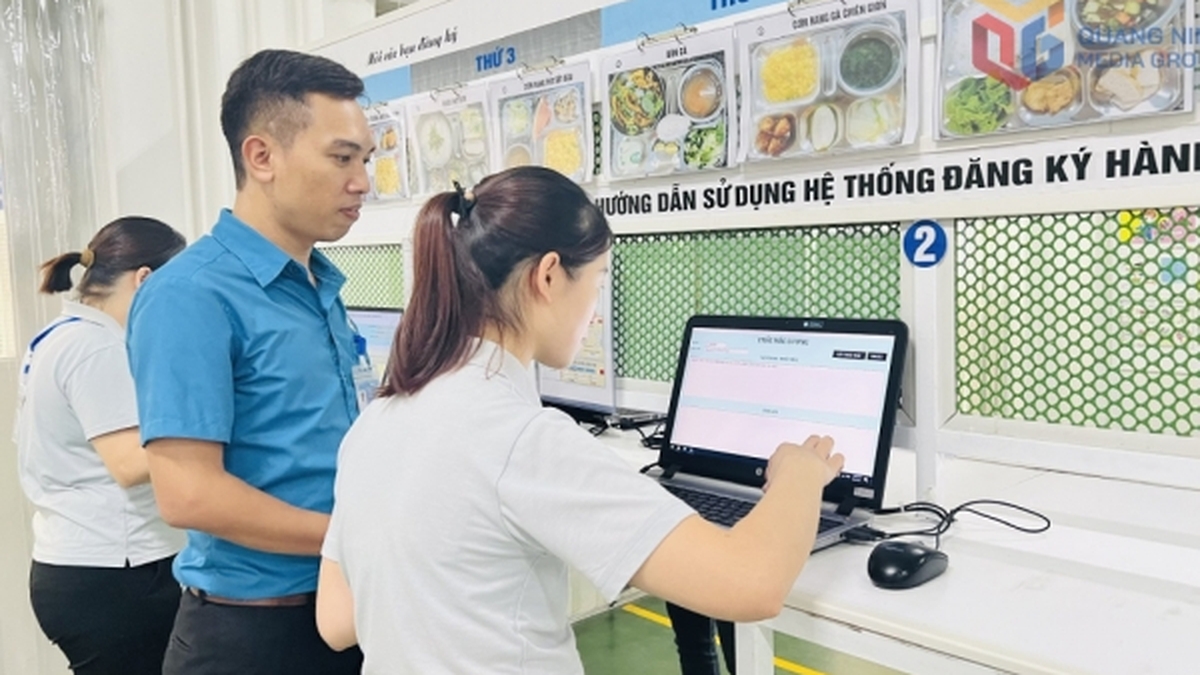




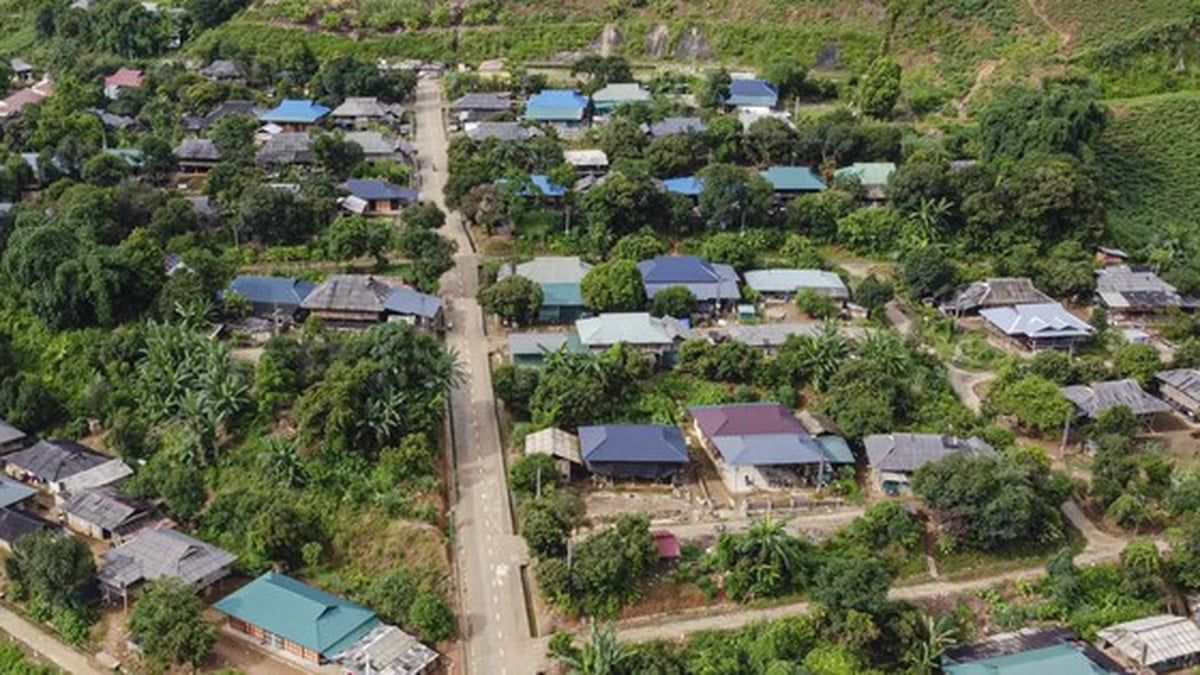








































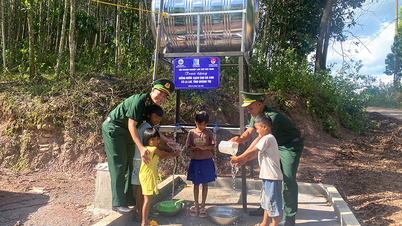




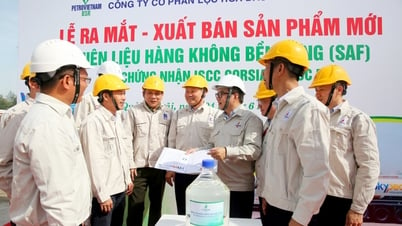





![[Maritime News] More than 80% of global container shipping capacity is in the hands of MSC and major shipping alliances](https://vphoto.vietnam.vn/thumb/402x226/vietnam/resource/IMAGE/2025/7/16/6b4d586c984b4cbf8c5680352b9eaeb0)














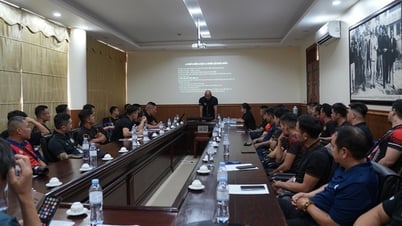






















Comment (0)